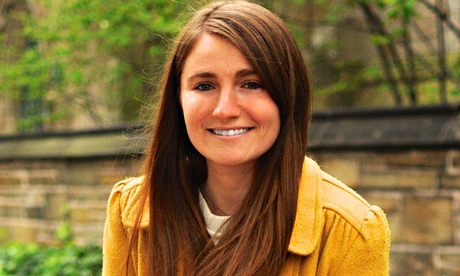
When Marina Keegan graduated from Yale in 2012 her CV already boasted internships at the Paris Review and the New Yorker (at which a much-coveted staff job awaited her) and a stint as a research assistant for literary critic Harold Bloom. She had had a play selected for a major theatre festival, and an essay published in the New York Times inspired by a piece she wrote for the Yale Daily News, Even Artichokes Have Doubts, in which she lamented the fact that a quarter of her Yale peers would be lured away from their artistic aspirations by lucrative contracts offered by consultancy and financial firms: "Maybe I'm ignorant and idealistic but I just feel like we can do something really cool to this world," she wrote. As her writing clearly demonstrates, Keegan certainly wasn't ignorant. The tragedy, though, is that she never had the chance to lose her youthful idealism: five days after graduation, she was killed in a car accident.
This collection brings together her published and unpublished work: nine stories and nine essays, including the final essay she wrote for the Yale Daily News, The Opposite of Loneliness, a meditation on the future awaiting her and her classmates on the eve of their graduation, which subsequently went viral. "We're so young," she writes. "We're so young. We're twenty-two years old. We have so much time."
In some ways Keegan's life reads like a tragic novella, her finite body of work inextricably and forever after bound up in the tragedy of her death, lending an understandable poignancy to much of the writing. Stability in Motion, for example, her elegiac essay about her first car, a vehicle "crowded" with the "physical manifestations" of her high school memories; or the short story Winter Break, in which a female college student's calming words to her mother are now loaded with hidden meaning – "Don't worry, I'm driving," she tells her as she and her boyfriend head off to a New Year's Eve party. Keegan wasn't driving, incidentally, it was her boyfriend, who fell asleep at the wheel. Sentences written lightheartedly are piercingly loud reminders of what will never be: "I plan on having parties when I'm thirty. I plan on having fun when I'm old"; throwaway comments about the children she'll one day have; a mouth-watering list of all the forbidden foods and drink she'll indulge in on her deathbed (Keegan was allergic to gluten).
However, rather than this being a collection of juvenilia, with an underlying theme of promise and potential, and despite Keegan being only at the beginning of her career, this book shows her prodigious talent already in full bloom. As befits her age and experience, she excels in capturing what it feels like to be on the cusp of adult life – from the daughter in Winter Break, who realises her own youthful romance has made her mother, a woman in whom the young girl now sees "a frailty to her posture, a thinness to her cheeks", comprehend the failures of her own marriage; to the undergraduate in Cold Pastoral, who has to deal with the death of the student she's been hooking up with, forced to reassess their relationship in the light of her loss.
But Keegan is just as eloquent and insightful when she looks beyond the horizon of the near-familiar. Who would have thought a profile of a bug and rodent exterminator, I Kill for Money, could provoke such pathos? While Challenger Deep, an account of five people trapped in a pitch-black submarine 36,000 feet underwater, is an accomplished horror story, deeply and fundamentally disturbing. Keegan may have died before her time, but she was a writer who demonstrated a gift beyond her years.

